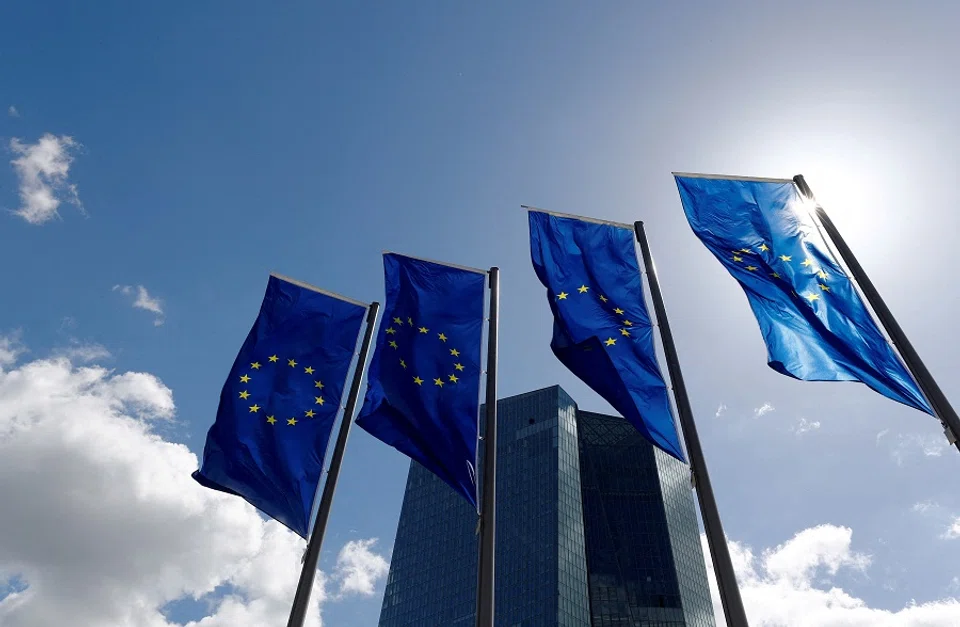Does Europe have strategic autonomy?
Even as the European Union (EU) seems to operate as a whole when it comes to international organisations such as the G7 and G20, there are contradictions within the grouping, as well as between the EU and external countries. Chinese academic Guo Bingyun looks at whether Europe’s seeming strategic autonomy has real substance to it.

Amid intensifying China-US strategic competition and Trump’s election victory, the question of Europe’s strategic autonomy has gained much attention. In particular, there have been discussions of the role of Europe’s strategic autonomy within the strategic triangle of China, the US and Europe, and within US strategy. In examining Europe’s strategic autonomy, two premises must be clarified: first, the scope of what is referred to as Europe; and second, whether Europe truly has strategic autonomy.
Defining Europe
Firstly, on defining the scope of Europe. Currently, the term Europe can refer to four different entities. The first refers to geographical scope. For instance, although the majority of Russia’s population resides in Europe, geographically, it is a Eurasian country rather than solely a European one. The second is cultural and sporting activities. For example, the UEFA European Championship (commonly known as the Euro) includes countries like Turkey, which could be considered part of Asia.
The third is ideological. Influenced by the Cold War, the term Europe in an ideological context mainly refers to the European member states of NATO during the Cold War, excluding eastern and southern European countries and former socialist states or Soviet republics that joined after the Cold War. In this context, Europe primarily refers to western Europe, including the UK.
The fourth is geopolitical. Against the backdrop of intensifying China-US strategic competition and increasing political polarisation worldwide, Europe mainly refers to the European Union (EU). Post-Brexit, because the UK’s foreign policy is closely aligned with that of the US, the UK seems more like a shadow of the US in Europe than a substantially independent state. Russia, though possessing cultural ties to the broader Christian tradition, became openly adversarial to the EU following the Crimean crisis and the Russia-Ukraine war. In this sense, the EU does not include countries such as Switzerland, Georgia, or Serbia. Clearly, the term “Europe” primarily refers to the EU, especially the EU post-Brexit.
Is there strategic autonomy for the EU?
The second, and more crucial question, is whether strategic autonomy truly exists for the EU, or to what extent it does. A lack of strategic autonomy is characterised by a country or group of countries being unable to independently make decisions crucial to their significant interests in domestic and foreign policy, due to interference from external major powers or collection of other countries. In the international community, small or weak countries often sacrifice strategic autonomy in exchange for national security when facing significant threats. For instance, the landlocked country of Bhutan recognises India’s guidance through formal treaties in exchange for India’s security protection.
... this political entity [the EU], which closely resembles a state in both form and function, is merely a highly integrated international organisation. Due to its inherent and insurmountable fatal flaws, its strategic autonomy is nearly as weak as that of Bhutan.

Since its inception, the EU has undergone seven rounds of enlargement and has achieved three significant transformations in integration, evolving from the European Coal and Steel Community to the European Community, and finally to the EU. Currently, the EU has established seven major institutions, including the European Parliament, the Council of the European Union and the European Central Bank. The eurozone has achieved monetary unification and has some degree of common foreign and defence policy.
Influenced by exchange rates, the EU’s GDP reached US$18.34 trillion in 2023, making it the world’s second-largest economy after the US, in terms of nomimal GDP. The euro is one of the major global currencies in circulation. The EU has a population of 449 million, which is 100 million more than the US. Among its core member states, France is one of the five permanent members of the United Nations Security Council. Additionally, the EU often participates as a single entity in major international meetings such as the G20 and the G7.
This history and reality led world leaders, scholars and journalists alike to view the EU as a country. However, this political entity, which closely resembles a state in both form and function, is merely a highly integrated international organisation. Due to its inherent and insurmountable fatal flaws, its strategic autonomy is nearly as weak as that of Bhutan.
This results in the EU’s integration being concentrated only in the economic sphere, while progress in the political sphere is fragmented with military security efforts stagnated.
Three major contradictions
Firstly, the Franco-German contradiction. France and Germany are the dual engines driving the development of the EU. While the two countries are quite united in enhancing the EU’s solidarity and integration, their rivalry for leadership within the EU is an open secret. Although France’s GDP is smaller than Germany’s — at US$3.03 trillion compared to Germany’s US$4.46 trillion in 2023 — France remains the only nuclear power within the EU and a permanent member of the UN Security Council.
Germany, with its immense economic power, enjoys greater prestige within the EU than France, but outside of pushing for EU integration in political and economic sectors, it remains hampered in the military and security domains due to its World War II history.
France seeks to revive the glorious eras of Louis XIV and Napoleon by leveraging on the EU, while Germany aims to solidify its position in the global economic landscape through the EU. This results in the EU’s integration being concentrated only in the economic sphere, while progress in the political sphere is fragmented with military security efforts stagnated. The contradiction between France and Germany is an inherent and lethal blow to the EU’s strategic autonomy.

Secondly, the contradiction between major and small countries. The three major countries of France, Germany and Italy — particularly France and Germany — aim to enhance their influence within the EU and on the global stage through the continuous enlargement of the EU, while small countries seek to actualise their economic development by joining the EU. Whether before or after joining the EU, smaller member states tend to be pragmatic — when faced with more enticing offers from major non-EU countries, it can be expected that these smaller countries might sacrifice EU interests to gain greater benefits for themselves.
The differences between southeastern and western European countries make it challenging for the EU to achieve cohesion on military and security issues.
Thirdly, the contradiction between southeastern and western European countries. Countries in southeast Europe — being geographically close to Russia, as well as its special relationship with the Soviet Union during the Cold War and due to the approach by Russia — have joined the EU and gained significant economic benefits. Yet they still lack confidence in the EU with regard to security matters.
The Crimean crisis and the Russia-Ukraine war have made economic interests secondary in these countries. In comparison, western European countries feel less threatened by Russia in terms of security. The differences between southeastern and western European countries make it challenging for the EU to achieve cohesion on military and security issues. When facing security crises like the Russia-Ukraine conflict, the EU can only rely on NATO, making its strategic autonomy like a sandcastle, existing only in name rather than substance.
In the academic community, the EU is often described as an economic giant, a political dwarf and a military midget. The EU, especially its major member states, is well aware of its inherent fatal flaws. Yet, in the face of these inherent weaknesses, France and Germany find themselves powerless. Beyond slogans and adopting peripheral measures, there seems to be no other solution.
This article was first published in Lianhe Zaobao as “欧洲战略自主是沙滩上的城堡”.





